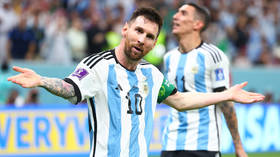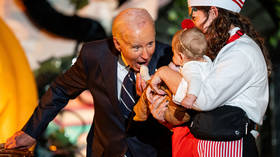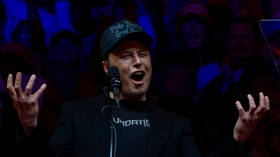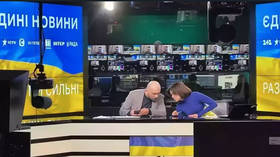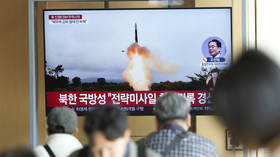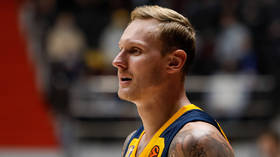There is much to unpack after the first couple of weeks in Qatar
With the FIFA World Cup on a brief hiatus before the quarterfinals kick off on Friday, an opportunity has been afforded to take stock of the various narratives, scandals, and moments of magic which have grabbed the headlines over the past couple of weeks in Qatar.
The tournament, thus far at least, has provided more than its fair share of shocks, stunning goals, and even the apparent downfall of one of football’s most famous names.
After the dust settled on the group stage and the round-of-16 matches, we break down some of the major talking points from football’s biggest showpiece.
Germany’s ‘One Love’ armband row
A culture clash between ultra-conservative Islamic hosts Qatar and the swathes of visiting teams from more ‘progressive’ countries across Europe and the rest of the world was always going to provoke some attention – and it certainly did in the opening days of the tournament.
Much of the lead-up to the World Cup was dominated by allegations of the human rights abuses of migrant workers in Qatar, as well as the treatment of LGBT individuals in a country where homosexuality remains illegal.
And football, a sport which rarely meets a topical social justice cause it doesn’t like, reacted in much the same way it did throughout the initial phase of the ‘Black Lives Matter’ movement: by some high-profile players signaling their virtues with rainbow-colored armbands designed to show solidarity to the cause.
FIFA had their own armband messages planned, and threatened sanctions for any players who displayed unauthorized apparel – leading to the now-infamous image of German players holding their hands over their mouths in a team photograph ahead of their opening match against Japan, in protest at being ‘silenced’.
Germany subsequently failed to advance past the group stage for the second World Cup in succession – something which was met with glee among some Qataris , as they highlighted in retaliation what they saw as German moral hypocrisy related to how former star Mesut Ozil was treated when announcing his retirement in 2018.
Some observers , meanwhile, suggested that Germany should perhaps have focused more on the football than off-the-field affairs.
Shock results
The aforementioned German capitulation, during which they were shocked by two late Japan goals in an opening 2-1 defeat which hastened their exit from Doha, wasn’t the only upset to take place in the first days of the tournament.
Argentina, who are among the sportsbooks’ picks to win the entire tournament, were stunned in their first match by a Saudi Arabia team which defied the odds to claim a 2-1 win against the South American champions.
suffering a 2-0 humbling by Morocco along the way.
Elsewhere, Australia surprised most by pipping Tunisia and Denmark to second spot in Group D, while Japan’s win against Spain was also a harbinger of things to come ahead of the Spaniards’ shock ousting from the knockout stages by Morocco this week.
And that’s before we even mention Cameroon’s 1-0 win against an already-qualified Brazil in their final group-stage game.
Ghana, meanwhile, scored a measure of revenge as they got to witness a Luis Suarez-led Uruguay being eliminated in hugely dramatic fashion – more than 12 years after Suarez’s handball in their World Cup clash in South Africa helped deprive Ghana of a first-ever semifinal appearance for an African team.
The Uruguayans were denied a knockout spot in Qatar thanks to last-gasp drama elsewhere on the final day in Group H, where a late goal for South Korea earned them a 2-1 win over Portugal, propelling them into the last 16 at the expense of the South Americans. Poland pipped Mexico to a knockout spot by virtue of a marginally superior goal difference.
While not necessarily shocking, this World Cup has also provided a significant helping of popcorn moments – Serbia’s 3-3 classic with Cameroon springs to mind, as does South Korea’s 3-2 defeat at the hands of Ghana, and the Ghanaians’ own 3-2 loss to Portugal.
The hosts’ awful record
There have been some abject performances in Qatar, and sadly for the hosts, they produced three of them. Indeed, Qatar’s decade-long strategy to ready itself for the biggest month of its football history fell flat in terms of its own performances on the pitch.
One goal scored, seven conceded. Three defeats. The worst record of a World Cup host in the history of the tournament.
But after spending upwards of a reported $200 billion to develop the various infrastructure (much to the chagrin of the previously mentioned human rights groups), and a 12-year strategy designed to identify and train Qatari football talent, getting a least a draw would have been nice.
Money can buy a lot of things, but apparently not success at the top table of international football.
The downfall of Ronaldo?
Qatar is set to be a World Cup swansong for football’s most famous name: Cristiano Ronaldo. But the tournament came at a strange time in the career of the presently unemployed star.
He arrived in Qatar on the back of a tell-all interview with the UK’s agitator-in-chief, Piers Morgan, which hastened his exit at Manchester United – and likely cost him a substantial part of his legacy at a club whose fans have previously sung his name until their vocal cords gave out.
Ronaldo was, as the script dictated, selected for Portugal’s opening matches by coach Fernando Santos – but the drop-off in form which had afflicted his final days at Manchester United had transplanted to his national side, with the Portuguese great largely ineffective throughout.
And what was worse for him was that his replacement, the 21-year-old Goncalo Ramos, scored a hat-trick . It has been a bad few weeks for the Ronaldo brand – but if the rumors of a big-money contract offer from a Saudi Arabian team are to be believed, his earning power looks set to increase in direct contrast to that of his playing abilities.
Japanese VAR drama
It just wouldn’t be modern football if there wasn’t a little drama from the VAR room. After its introduction at the World Cup in Russia four-and-a-half years ago, VAR has become the Marmite of football officiating: either you love it, or you hate it.
a controversial late goal in their 2-1 win against Spain appeared to show that the ball had somewhat miraculously stayed in the field of play before it was crossed for Ao Tanaka to poke home into an empty net.
Spain (and the ousted Germany) will likely be more than aggrieved at the outcome of the inquest into whether or not the goal should have stood. In the end, the Spanish only have themselves to blame for their subsequent penalty shootout exit at the hands of Morocco, while the Germans’ problems ran much deeper than being dumped out by a moment of VAR contention.
As for the neutrals? You can’t buy that type of drama and – rightly or wrongly – many were glued to their television screens when the fate of an entire footballing nation in a four-year World Cup cycle falls upon the evidence of a CSI-style investigation.
Political football
If sport is essentially a vehicle for drama or scandal, this World Cup has faithfully delivered. The build-up to the event was dominated by allegations of Qatari wrongdoing, then you had the various armband rows and subsequent FIFA interjections.
But it hasn’t stopped there. Headlines were made on the eve of the tournament after Qatar’s sudden about-face when it came to serving alcohol near or inside stadiums .
Then we had the politically-charged tensions between Serbian and Swiss players spilling out onto the pitch and the sidelines, which was exacerbated by Swiss player Granit Xhaka aiming a dig as his Serbian opponents on the subs’ bench.
hanging a flag depicting Kosovo in their dressing room prior to their defeat by Brazil.
The USA also ignited a potential political firestorm when the US Soccer Federation displayed an Iranian flag on social media which didn’t feature the emblem of the Islamic Republic ahead of their group-stage fixture.
Iran threatened action with FIFA against the USA, while the Americans said that the measure was taken in solidarity with the ongoing human rights protests in the country. US coach Gregg Berhalter apologized, and the correct Iranian flag was later used by US soccer’s social media accounts. A single goal from Christian Pulisic settled the match , if not the issue.
depicting both the Cameroon and Russian flags .
pledged to sell the boots to raise money for charity in Russia in the days following the World Cup.
the playing of Russian folk songs ‘Kalinka’ and ‘Katyusha’ , which could be heard at various points throughout the tournament as played by local bands to whip up the atmosphere.
Potential winners
Back to the football. With just eight teams remaining, it is beginning to become clearer as to who might lift the famous trophy on December 18.
The South American duo of Brazil and Argentina look to be in imperious form, the latter of whom are looking to claim world football’s biggest prize as a parting gift to Lionel Messi on the occasion of his final World Cup: an accolade which would place him neck-and-neck with Diego Maradona in the country’s list of immortal sports heroes.
produced some moments of magic in Qatar, and shackling him will be key if the Netherlands stand any chance of progressing from their quarterfinal clash. the 4-1 drubbing of South Korea in the last 16. looking steady if unspectacular thus far in Qatar.
leading the race for the Golden Boot on five goals. Les Bleus face cross-channel rivals England in their last-eight clash.
Even England, always the bridesmaids in situations such as this, appear in with a shout of ending their 50-year famine with a trophy after running up big scorelines against Iran and Senegal.
Portugal certainly can’t be ruled out, not least after setting the rest on notice with their demolition of the notoriously stubborn Swiss. the support for the North Africans has been fervent in Qatar and far beyond.
